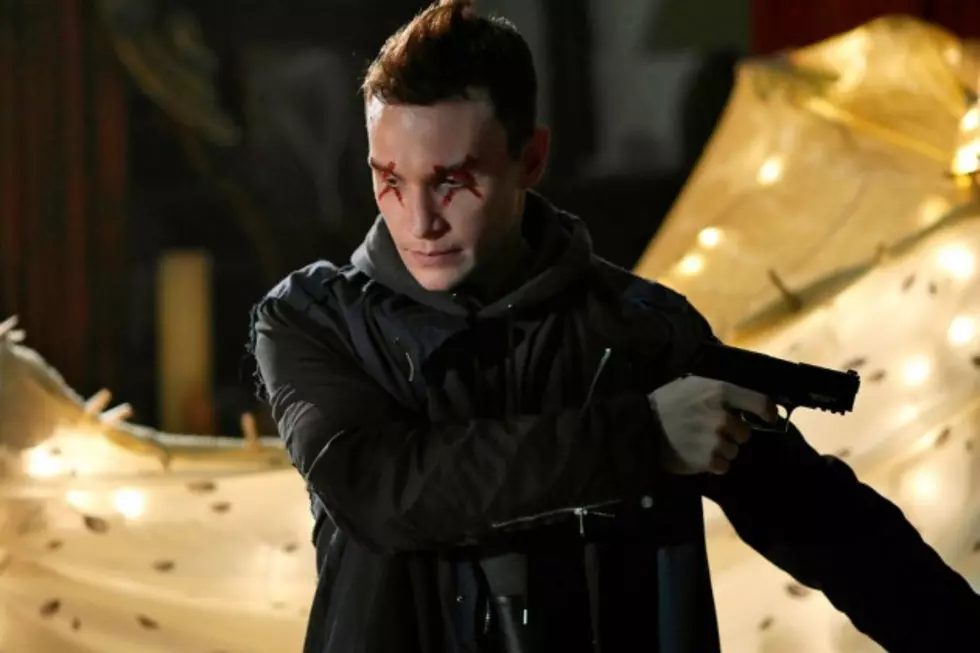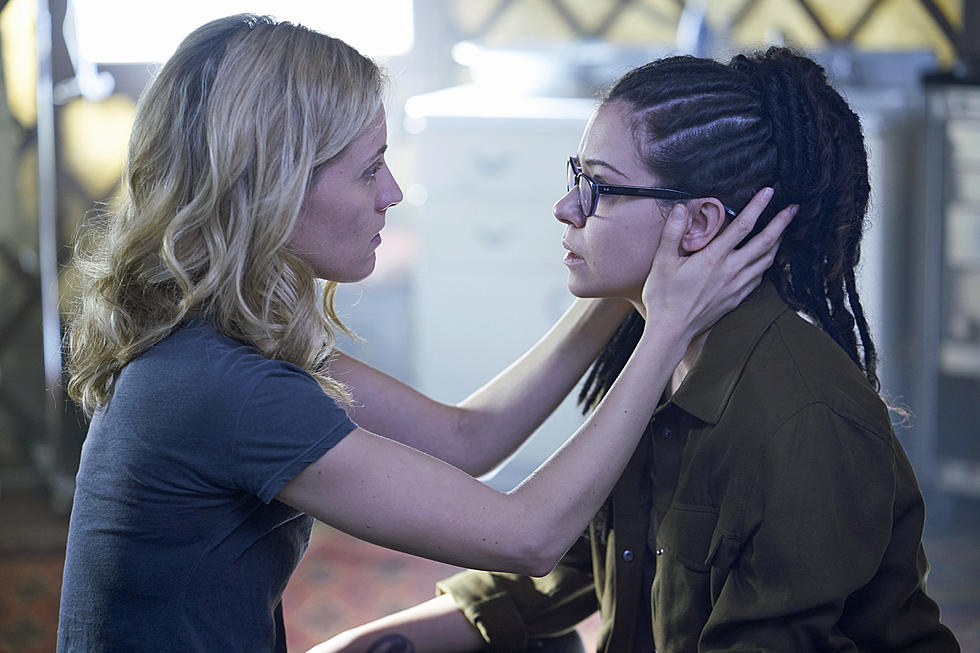
‘Orphan Black’ Brings Male Clones and Mangoes in ‘Transitory Sacrifices of Crisis’
For the last two seasons, Orphan Black’s primary focus has been delivering dimensional stories about women, each female clone highlighting how different and engaging each woman can be, while also symbolic of various genres (Helena is horror, Cosima is sci-fi, etc.). But with the addition of the male Castor clones in Season 3, the dynamics have changed and the stakes are higher than ever before. This isn’t just about man vs. woman, it’s about nature vs. nurture and what it means to survive.
“Transitory Sacrifices of Crisis” is an incredibly intense follow-up to last week’s premiere. The Castor clones prove themselves as not only the most formidable threat Sarah & Co. have faced thus far, but they’re downright terrifying and insidious. The episode opens with Seth and the newly-emancipated Rudy luring a woman back to their hotel room, where they unpleasantly surprise her with a creepy double-team sexual assault. When she speaks with Detective Bell and Sarah later, Bell suggests that what happened to her was “assault,” to which she aptly (and sorrowfully) replies, “It’s not rape because I said yes to the other guy, right?” And that’s rape culture in a nutshell.
Not only is Orphan Black great at feminist storytelling, but this season it’s widening its scope to explore the complicated areas of gender dynamics. Yes all women, not all men — and not all male clones, either, but we’ll get to that in a bit.
As previously mentioned, the Leda clones offer up a chance to showcase the many stories and varied lives of women, from the hellishly flawed and damaged Helena to the buttoned-up Alison trying to repress her identity with the normalcy of suburban comforts, and everyone in between. And as for Alison, she continues to supply the show with comedy as she and Donny collaborate to buy up the supply and client list from a young drug dealer so she can earn the favor of the other school moms to win the trustee position:
And…that’s about the only real moment of levity this week (Felix and Scott ‘shipping aside). It’s still unclear what Seth and Rudy are up to, exactly, other than their goal of acquiring the original Castor genome, which they believe the Leda clones are guarding. But unlike the Leda clones, the Castor men aren’t nearly as different from each other — they’re all disturbed to some degree, which is due in part to the nature of their upbringing. The Leda girls were nurtured and cared for, encouraging their innate sense of empathy and their own nurturing instincts, while the Castor clones were raised as soldiers, treated coldly and allowed to give into their darker nature.
Just as Sarah decides that she and Kira will live with Cal in his nice new home and try to have normal lives, Seth and Rudy pay them a visit, resulting in the most intense and horrific moment of the episode:
And while Scarface Rudy is threatening Kira’s life if Sarah doesn’t hand over a genome she doesn’t have, Seth is officially glitch-ing out downstairs following a confrontation with Cal. I honestly believed Rudy might kill Kira because he’s so damn believable as a heartless and mechanical soldier, narrowly-focused on his goal. The way he puts Seth out of his misery without even flinching is further proof of how threatening he is — Rudy is all terrifying action. But what about that glitch? Seth suffers through most of the episode, his brain enduring some sort of malfunction, resulting in acts of self-harm and aggressively confused thinking.
Whatever the Castor clones are up to, it definitely seems like the goal is to cure themselves of these inevitable glitches. Just like the Leda clones, the men also carry a birth defect equally as deadly, and it’s interesting how the Leda girls are afflicted with a gender-specific ailment, while the Castors are afflicted by a more violent, mentally deteriorating one which affects their rationality — an aspect of humanity often aligned with men.
This week, Cosima learns a few things: Project Leda was originally sanctioned by the government (we all knew that, though), and after the government shut the project down, the Duncans were recruited by Dyad. The couple abandoned the Castor clones for unexplained reasons (though it’s easy to see why), and took the identities of the clone donors from both projects to their graves. Perhaps we’ll learn those identities as the season unfolds.
Meanwhile, Helena is still being held captive by the mysterious woman (Dr. Virginia Cody, it is revealed) at a classified military base, which I think is safe to assume may be a splinter group that sprang up following the departure of the Duncans. Helena is being tortured with the same verbal puzzle tests given to the Castor clones, and clearly they have no idea what they’re dealing with or they would know not to ask Helena such questions, especially when it involves food (oh, and she’s still seeing a talking scorpion):
At episode’s end, Sarah sends Kira away with Cal to protect her, just as Mrs. S. insisted she should, and gets right back to work on her mission to recover Helena so she can “end this s—.” But first, she needs to talk to the one clone they do know, who’s actually a #NotAllMenClones guy: Mark, who is holed up in a hotel with Gracie. If you had any questions about whether Mark knew about his life as a clone, they’re answered here, as he rejects this part of his identity (and therefore his nature) by burning off his two-headed horse tattoo:
Ouch. As a cliffhanger, it’s a thought-provoking one, and we’ll see what help Mark can (or won’t) offer Sarah next week.
More From ScreenCrush









